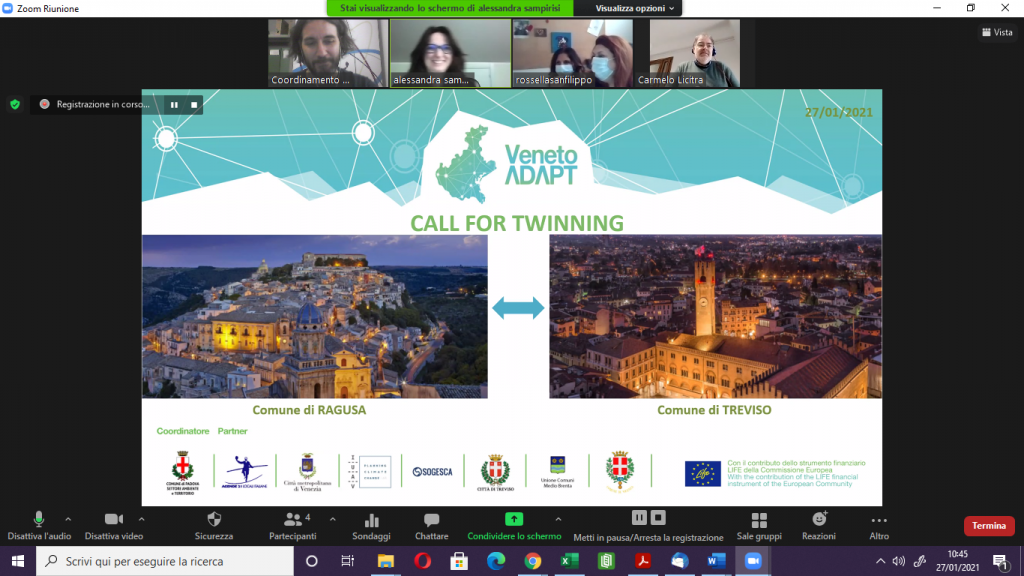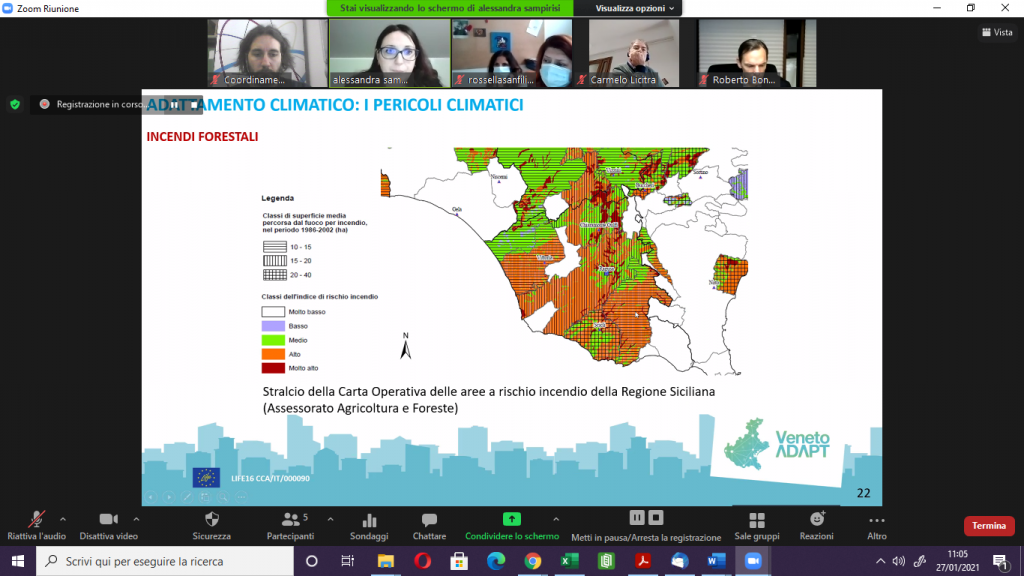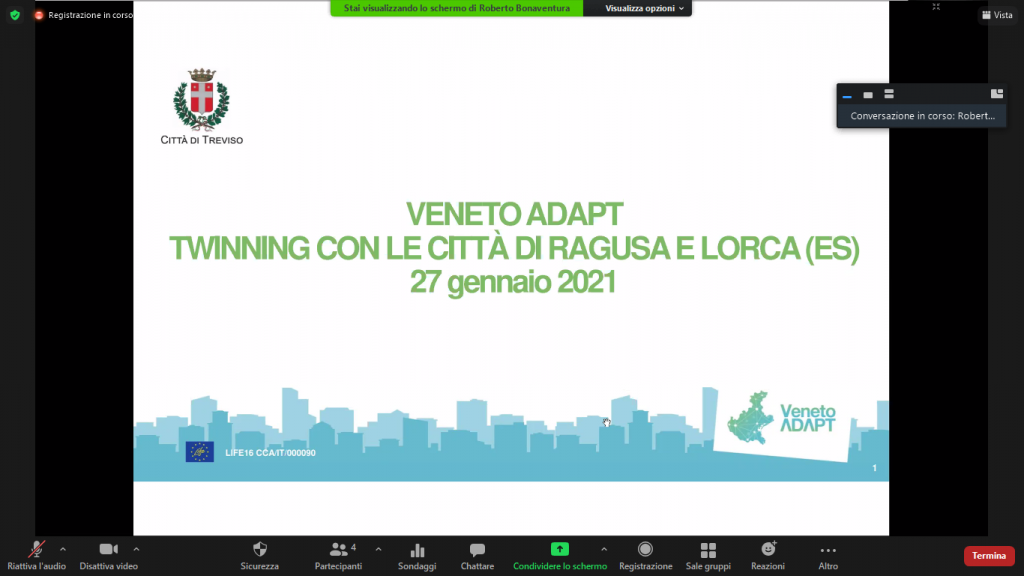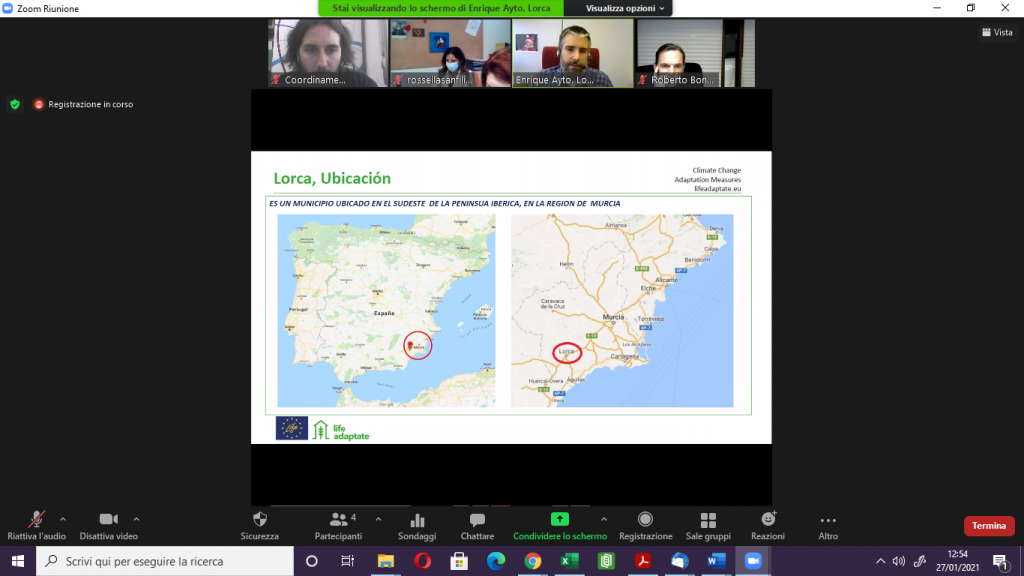Two virtual twinning events took place yesterday (27 January) that saw the Comune di Treviso, partner of the LIFE Veneto ADAPT project and Ragusa and Lorca (Spain), the cities selected by the Call for Twinning promoted by Veneto ADAPT.
At the first meeting, that saw Ragusa and Treviso in attendance, representing the Sicilian council were: Carmelo Licitra, its Energy Manager as well as Head of the Regional Technical Office and Sustainable Energy and Transport Services, along with Alessandra Sampirisi who collaborates with the EGE and Mirco Alvano, tasked by the Council with the job of writing the PAESC; representing Treviso was Roberto Bonaventura, Director of the City Planning and Coordinating Department of the Veneto ADAPT project, Rossella Sanfilippo and Anna Maran of the Environment Department.
The initiatives and measures for a more resilient city were at the heart of the call between the two cities, who together went over what is already in place and what more can be done when it comes to sustainability.
The two Councils discussed in particular the approaches at their disposal, facilitated by Veneto ADAPT, starting with the 600+ intervention methods already identified, from the bottom-up approach to encourage regional planning to the approaches for sustainable transportation listed by the Urban Programme for Sustainable Transport. Other commonly discussed topics, that can be better explored in the next meetings, are the approaches to urban forestry and the mitigation of urban heat islands.
The second, more international meeting, saw the same Treviso ‘team’ in conversation with Enrique Ayto of the Ayuntamiento (Council in English) of Lorca, Urban and Environment Department. A rich exchange of experiences also took place with the Spanish city to guide the respective communities towards the Sustainable Development Goals for 2030 and beyond. Many were the subjects of interest tackled to make the PAESC plans a reality: managing urban heat islands and dealing with heat waves, urban forestry and the making buildings more resilient to the impacts of climate change.











